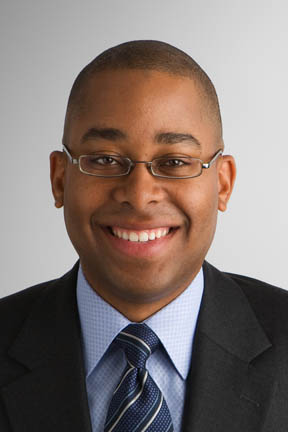 “The report is not terribly surprising,” Canadian Association of Black Lawyers president Andrew Alleyne tells Legal Feeds. “I do think the issue is of vital importance. Bay Street and a number of institutions have gone further in terms of fostering diversity, but they’ve got a very long way to go.”
“The report is not terribly surprising,” Canadian Association of Black Lawyers president Andrew Alleyne tells Legal Feeds. “I do think the issue is of vital importance. Bay Street and a number of institutions have gone further in terms of fostering diversity, but they’ve got a very long way to go.”The DiverseCity Counts report was prepared by the Diversity Institute at Ryerson University, for DiverseCity: The Greater Toronto Leadership Project. It followed 3,330 leaders within the corporate, public, elected, education, and nonprofit sectors. It was the first time in the report’s three-year history that visible minority leadership in the legal sector has been studied.
It’s findings are alarming — if perhaps not all that surprising, unfortunately — to those within the legal community. Only 6.8 per cent of those in positions of leadership in the GTA legal sector are visible minorities. That’s a pitiful number when you consider that 49.5 per cent of those within the population studied are visible minorities.
“Lawyers and judges are influential decision makers who shape the laws and the administration of justice,” said the study’s lead author, Wendy Cukier. “Lawyers lead in other areas too, such as in elected office — in fact, 73 per cent of Canadian prime ministers have also been practising lawyers. They are also at the forefront of advocacy and social change. Representation in this sector is critical to a democratic society.”
Here are some other key findings from the report that the legal community should reflect on:
• In the legal profession, judges have a greater level of visible minority representation compared to law firm partners or Crown attorneys, at 8.3 per cent versus 6.6 per cent.
• Overall, 14.5 per cent of leaders in the GTA are visible minorities. That’s up from 13.4 per cent in 2009.
• Visible minorities are best represented in leadership positions within governing bodies and law schools, at 10.5 per cent.
“But, as you can imagine, only 18 black partners on Bay Street out of the hundreds if not thousands of partners on Bay Street is a pretty small number,” he says. “So we have a very long way to go.”
The only way for law firms to make meaningful change may be through pressure from the corporations that pay for firms’ expertise, suggests Alleyne.
“It’s a very small number of corporations that are doing that, and it’s not really becoming much of an influence on the way Bay Street firms staff their files,” says Alleyne. “Until this becomes something that Bay Street firms see as a benefit to them, I don’t know that we’re going to get that much further.”
Julia Shin Doi, president of the Federation of Asian Canadian Lawyers, believes headway can also be made through the enhancement of social and professional networks. The DiverseCity report identified deficiencies in that area.
“Organizations such as FACL assist in providing a network for visible minority legal professionals,” she says. “FACL fosters advocacy, community involvement, legal scholarship, and professional development, which are key touchstones to advancement in the legal sector.”










